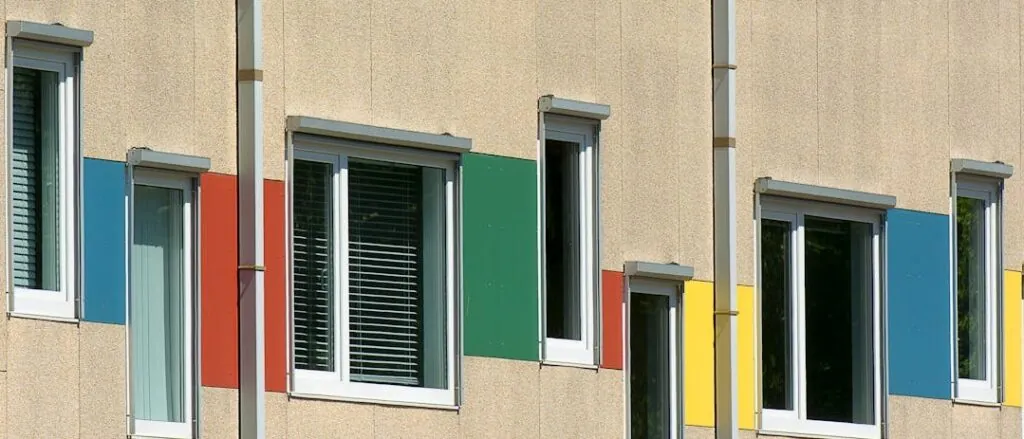Posted in:

High-quality windows can withstand a lot, but they won’t last forever. Ideally, you should replace windows every 20 years or so, as warping of the frame can lead to lower energy efficiency and higher noise pollution. Additionally, upgrading your windows can boost the value of your home.
With that in mind, what’s the best type of window for your New Jersey home? Below, we weigh the pros and cons of the most popular options.
The Best Window Options
To find the best window option, you must consider the placement. For instance, a bay window isn’t great for basements, as there’s little space. Conversely, a hopper window may not work in the living room because it doesn’t let in much light.
Another essential factor to consider is the function. Do you want to open the window to let in the breeze? Do you prefer a window that can’t open for greater security? Is your ideal window somewhere in between? Figuring out the purpose ensures you choose a design you’re happy with.
Finally, think about aesthetics. Windows are just as ornamental as they are functional, and choosing designs that complement your home’s architecture is important.
Hopper Windows
These classics are great for basements, as they don’t take up much space and fit neatly along the top of your wall. Their rectangular shape also allows you to pair them with picture windows, introducing ventilation without compromising safety.
Hopper windows open inward on hinges at a maximum of either 90 or 45 degrees. This flexibility allows homeowners to crack their windows open as much or as little as they want.
Due to their uniform size and relative simplicity, hopper styles are quite affordable. If you’re renovating on a budget, these highly functional windows can provide a lot of bang for your buck.
Where is the best place to install a hopper window? Besides basements, bathrooms can benefit from these smaller window designs. Ventilation is crucial in bathrooms, as they accumulate moisture more than any other space. Excessive moisture can cause mold and mildew growth, negatively affecting health and requiring professional cleanup.
At the same time, you don’t want a huge window looking into your bathroom. Hoppers’ narrow shape and high installation placement provide maximum privacy while allowing you to air out the space after a steamy shower.
Double- and Single-Hung Windows
Also called sash windows, double- and single-hung windows are classic designs for their easy use and rectangular frames. Unlike hopper windows, they tend to be taller than they are long, allowing you to place several along a single wall.
In contrast to hoppers, sash windows slide up or down. The main difference between double- and single-hung is how many panes move. As you may have guessed, a double-hung window’s upper and lower panes are mobile; in single-hung windows, only the lower pane moves. This design eliminates the risk of the pane falling open and potentially hitting someone, which is a concern with hopper styles.
Both sash models are aesthetically and functionally versatile, making them great for the following:
- Bedrooms
- Living rooms
- Home offices
Single-hung windows tend to be cheaper, but double-hung options add more value. Both offer ventilation, though the double-hung allows more airflow options. Additionally, double-hung windows may be a better choice for homeowners with pets or small children, as they can slide open the pane that’s out of reach.
Picture Windows
The aptly named picture window fills rooms with natural light while allowing residents uninterrupted views of the outside. While you can find smaller picture windows, standard sizes are fairly large. In fact, you can find designs that occupy half a wall or more!
Due to their size, picture windows tend to be expensive. However, they add great value to a property and boost curb appeal for their picturesque appearance. They’re also a more sustainable option than hopper or sash windows since they don’t open; no openings mean a low likelihood of drafts and reduced energy efficiency. Their uninterrupted glass also lets in light for long periods, allowing you to light and warm your home without electricity.
Fixed windows are also more secure since there’s no risk of accidentally leaving them open. Potential burglars also can’t jimmy them open; they’d have to smash the glass, which is a noisy and messy affair. Thieves prefer easy targets and may pass on homes with picture windows for easier prey.
Of course, every window type has its downsides. Since picture windows don’t open, you can’t use them for ventilation, which can get irritating during muggy summers. Their large size also means less privacy; you’ll need custom curtains to prevent passersby from peering in.
Bow and Bay Windows
Both bow and bay windows utilize multiple panes of glass and protrude outward, creating shelf-like sills. Bay and bow windows are some of the most expensive options since their structures are so complex, but they significantly boost property value for the same reason. They’re also incredibly picturesque and look great on nearly any kind of architecture.
The major difference between bay and bow models is the number of panes. Bay windows always have three panes, while bows have four or more. Additionally, bay windows have only two panes that open, while bow windows can have several sash windows, making them the better choice for maximum ventilation.
Due to their multiple panes, bow and bay windows are excellent for letting in natural light. This makes them great for kitchens, dining rooms and living rooms. You can also pair them with window seats to create relaxing reading nooks.
The customization potential for these designs makes them highly appealing, but adding them during renovations presents challenges. Replacing a sash window with a bow or bay model can be costly since the engineers must retrofit the frames.
One area where you can save money is materials. Vinyl is weather-resistant and requires minimal maintenance, which means less cleaning and repainting. While wood is gorgeous and classic, it’s less resistant to moisture and ultraviolet radiation. As a result, it needs regular refinishing or painting; it may also swell and shrink as temperatures fluctuate, resulting in drafts.
Professional Window Replacement
Cherry Roofing and Siding can also install or replace windows for New Jersey homeowners. Contact us today to learn more about our services.
May 23, 2024







